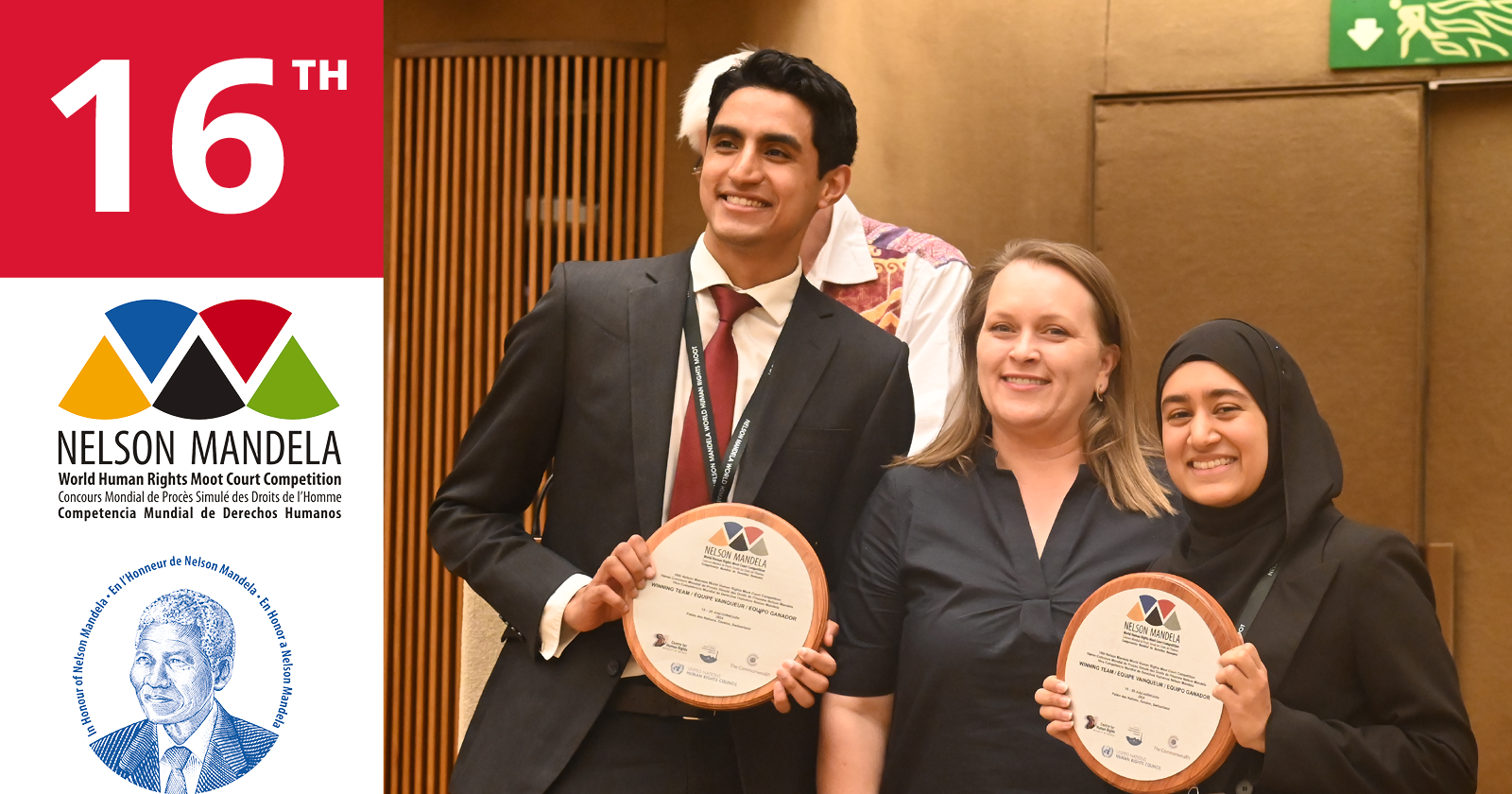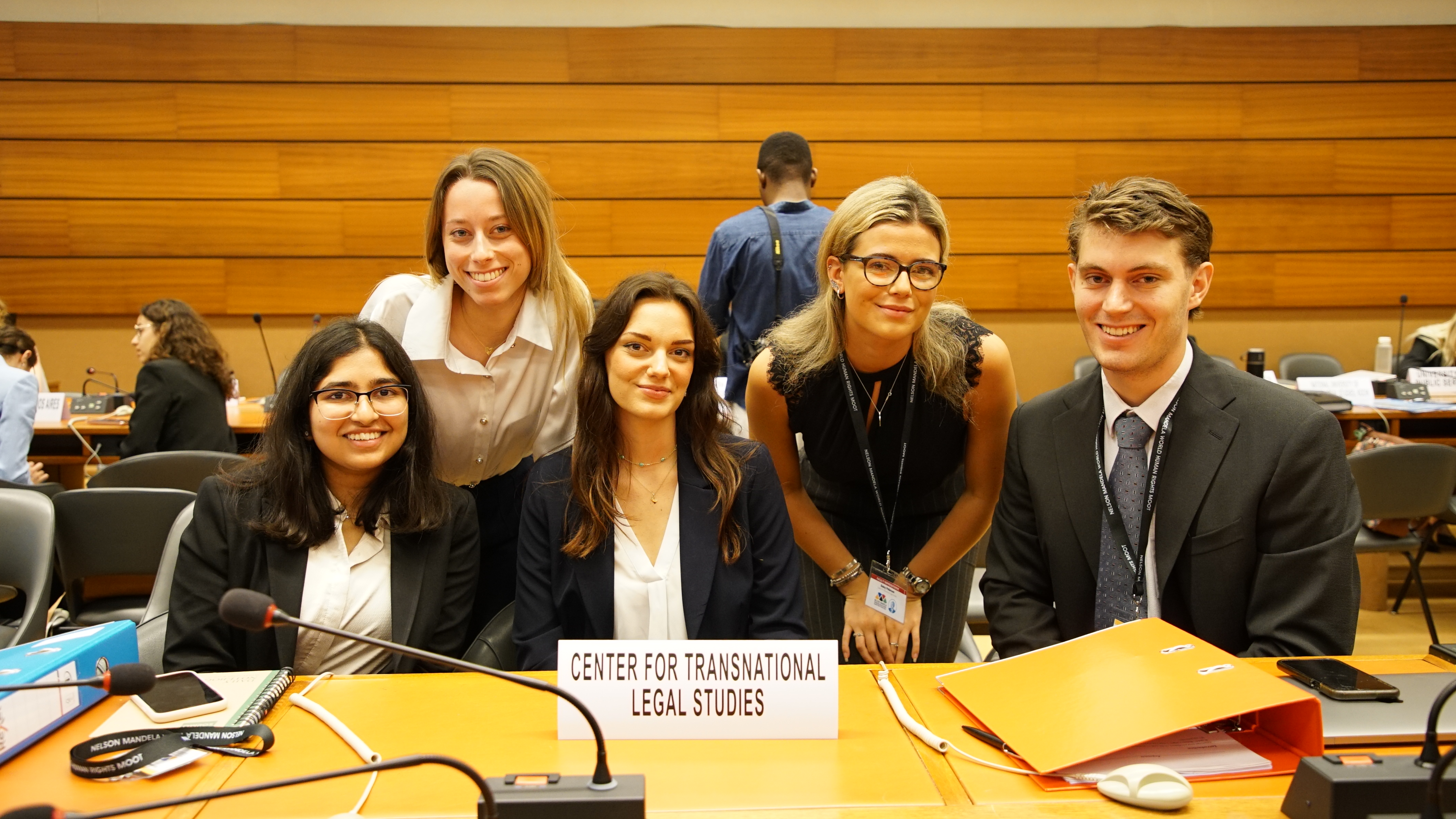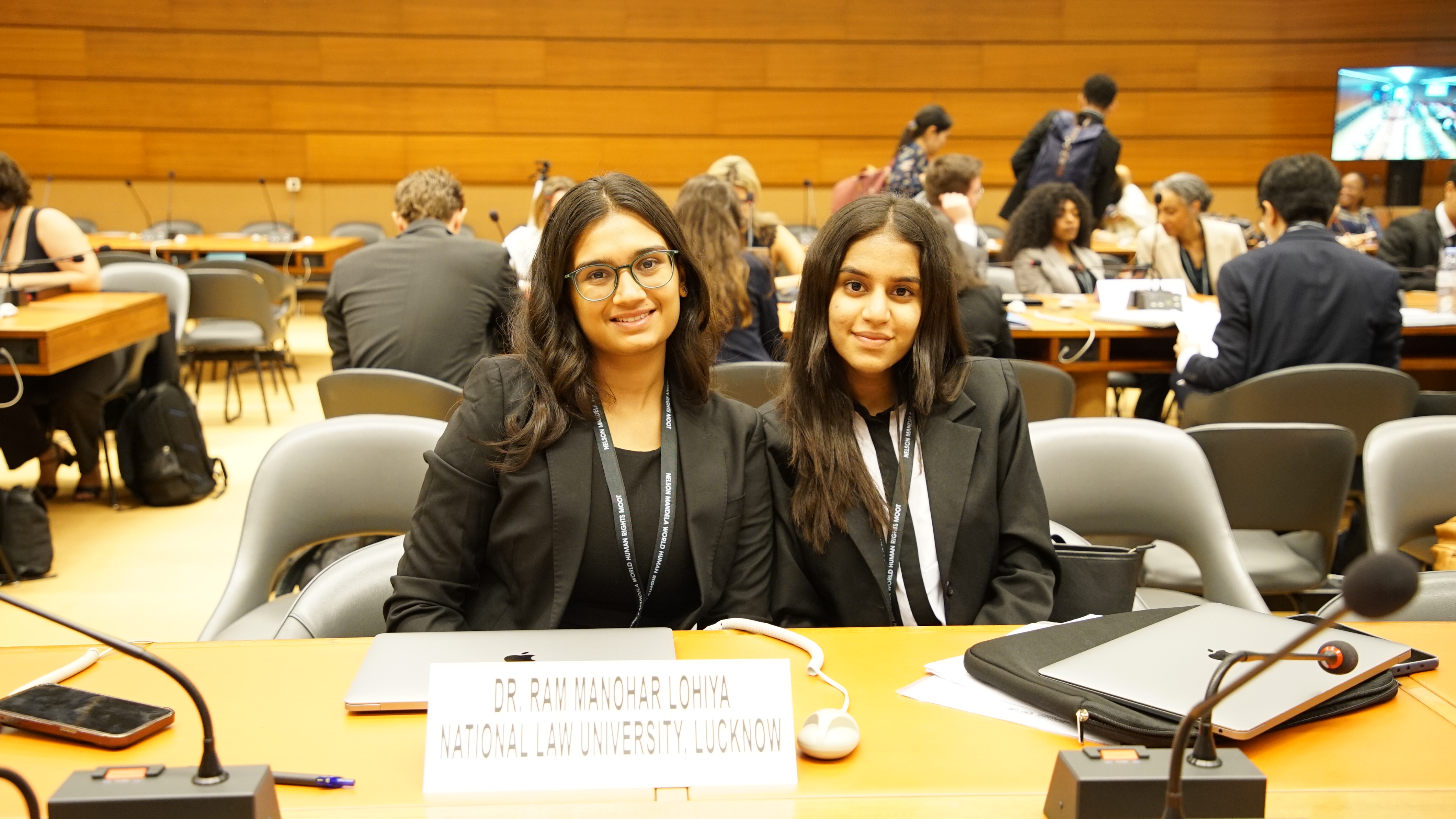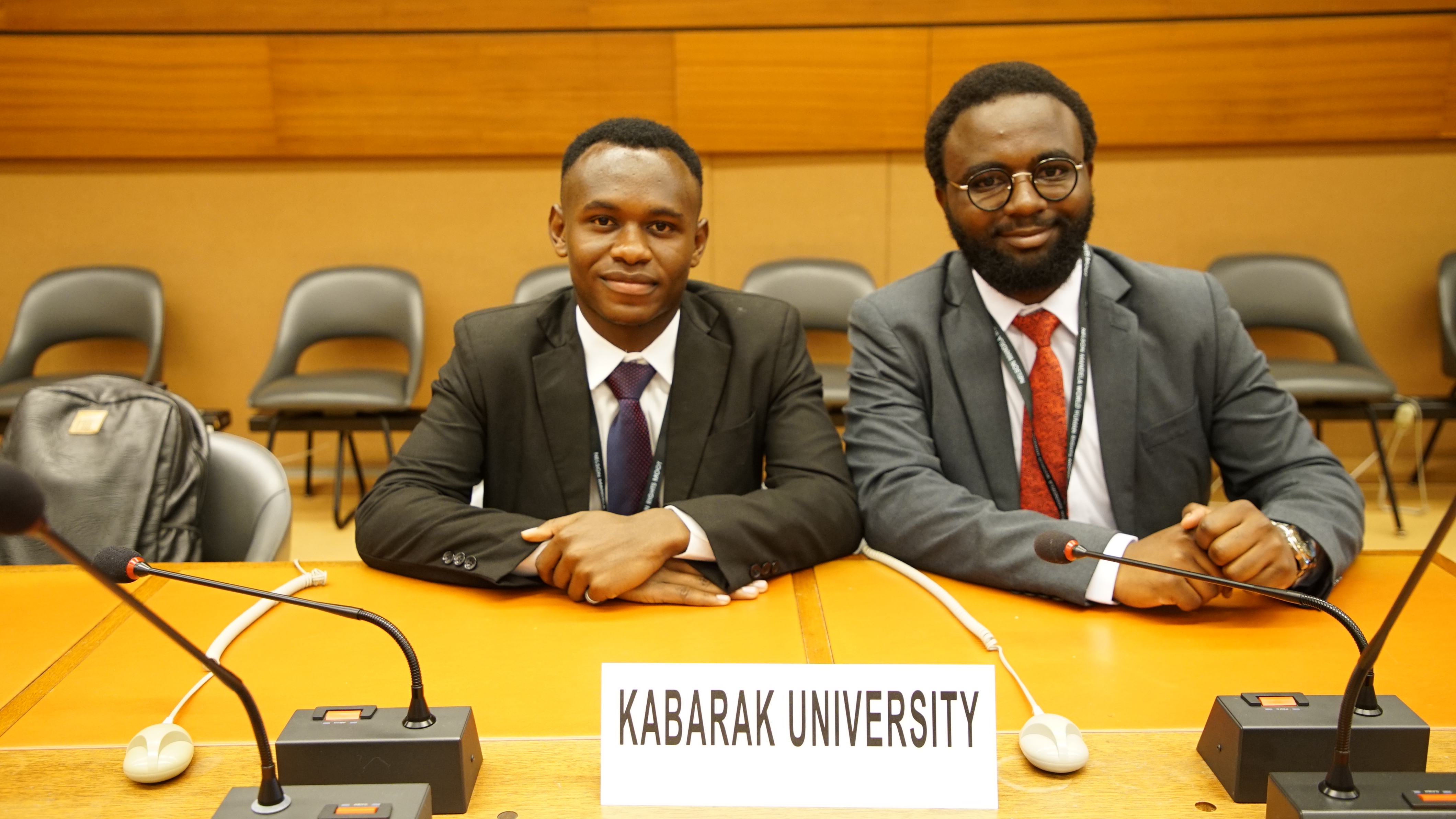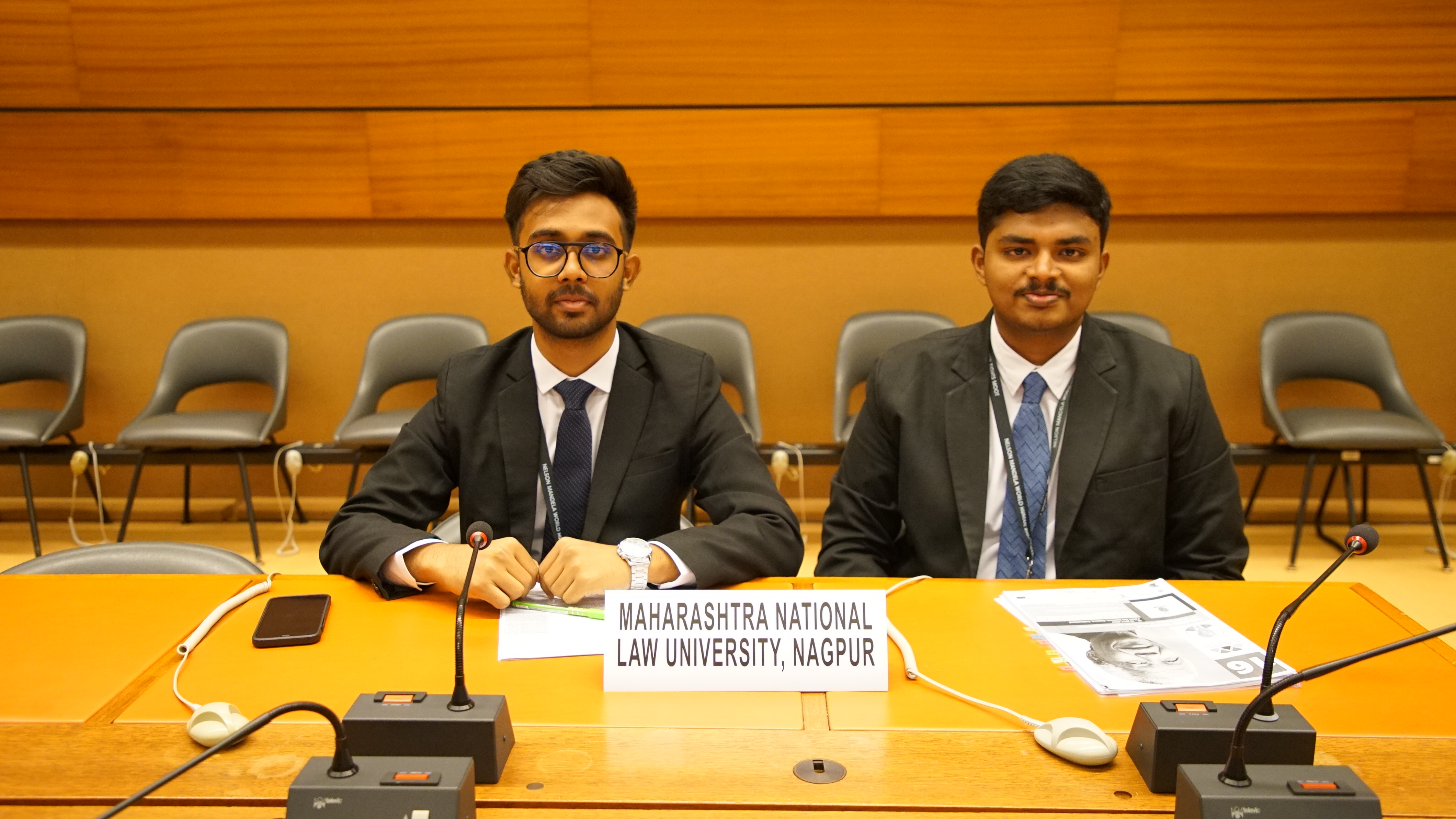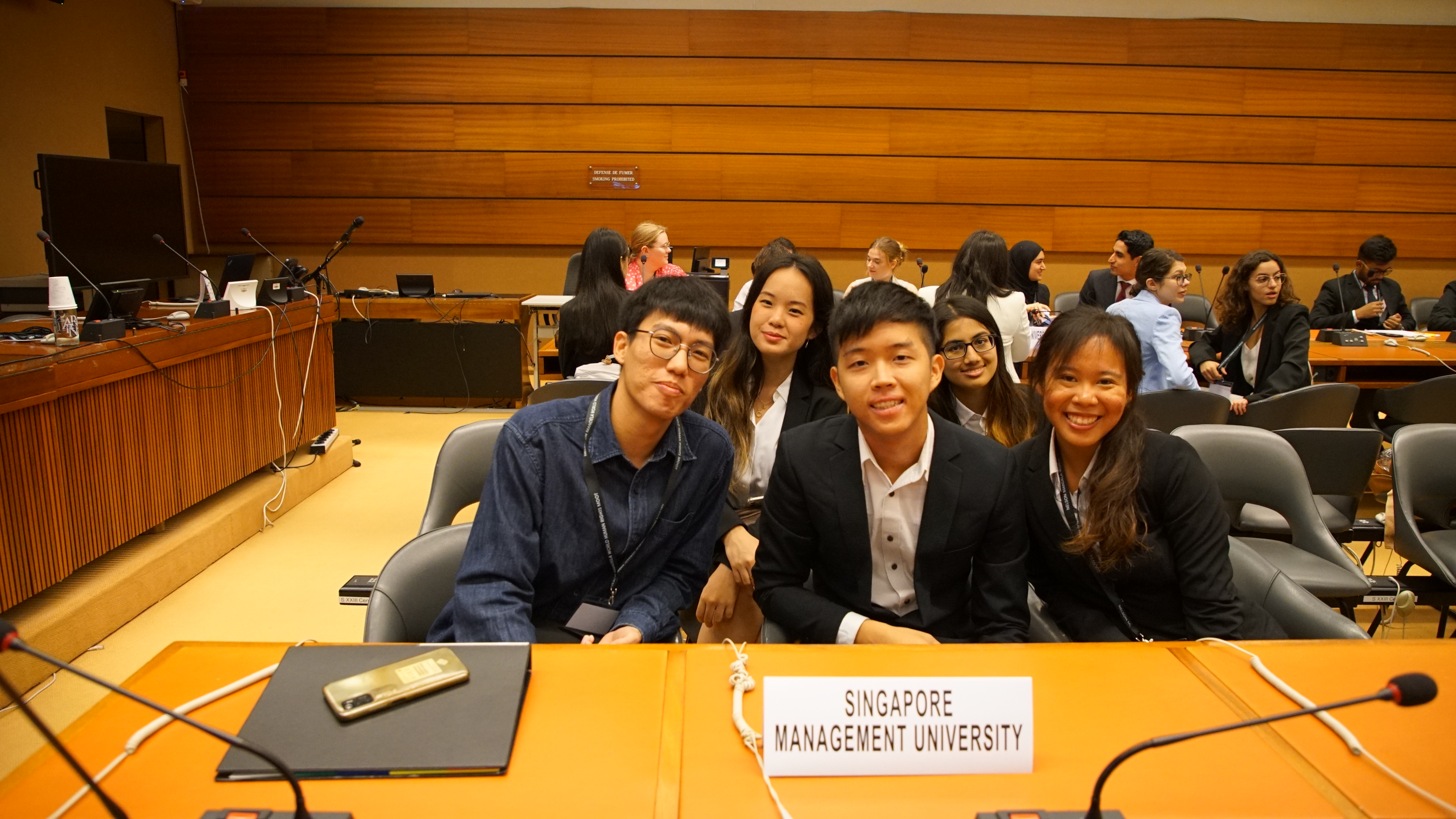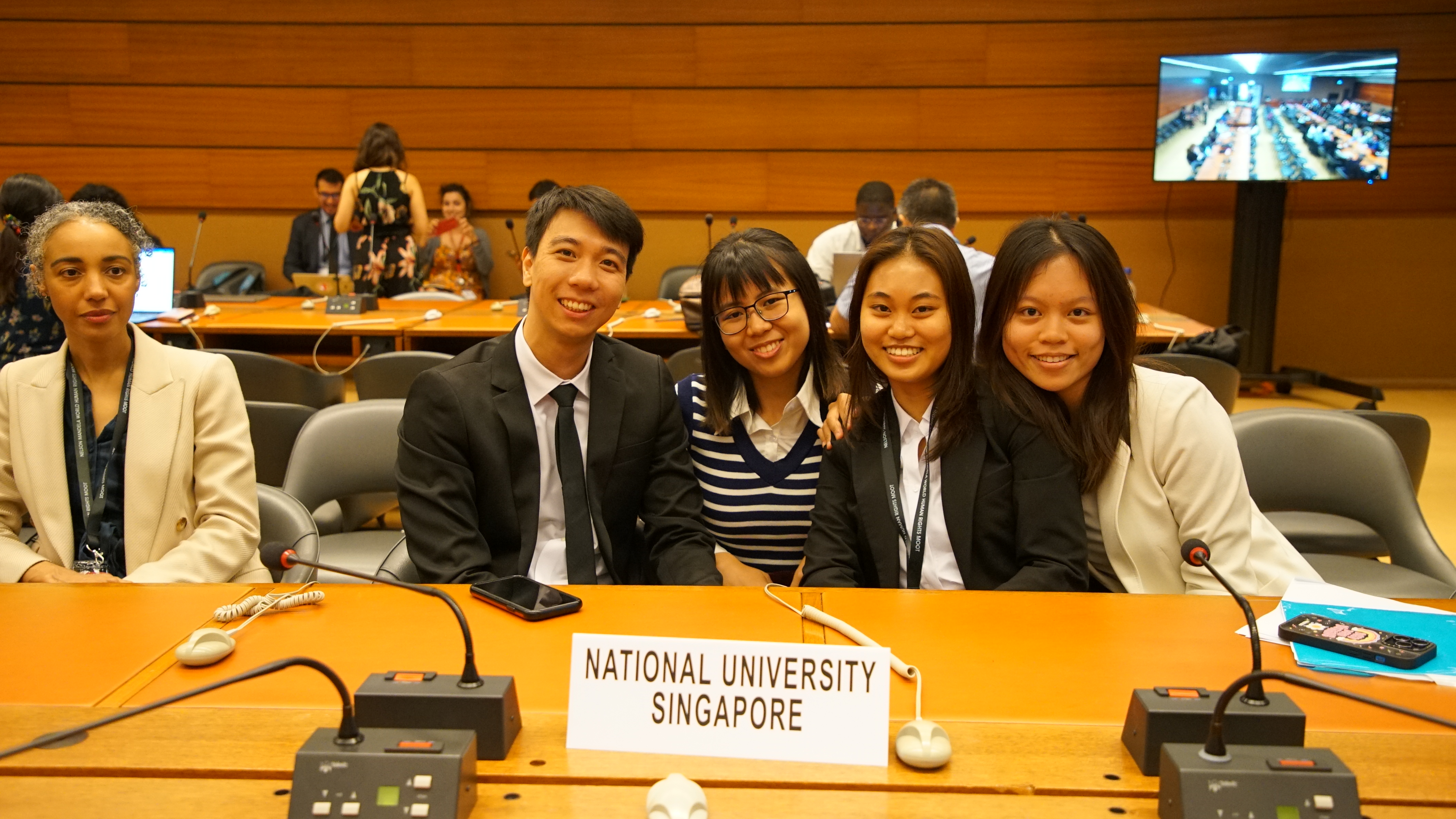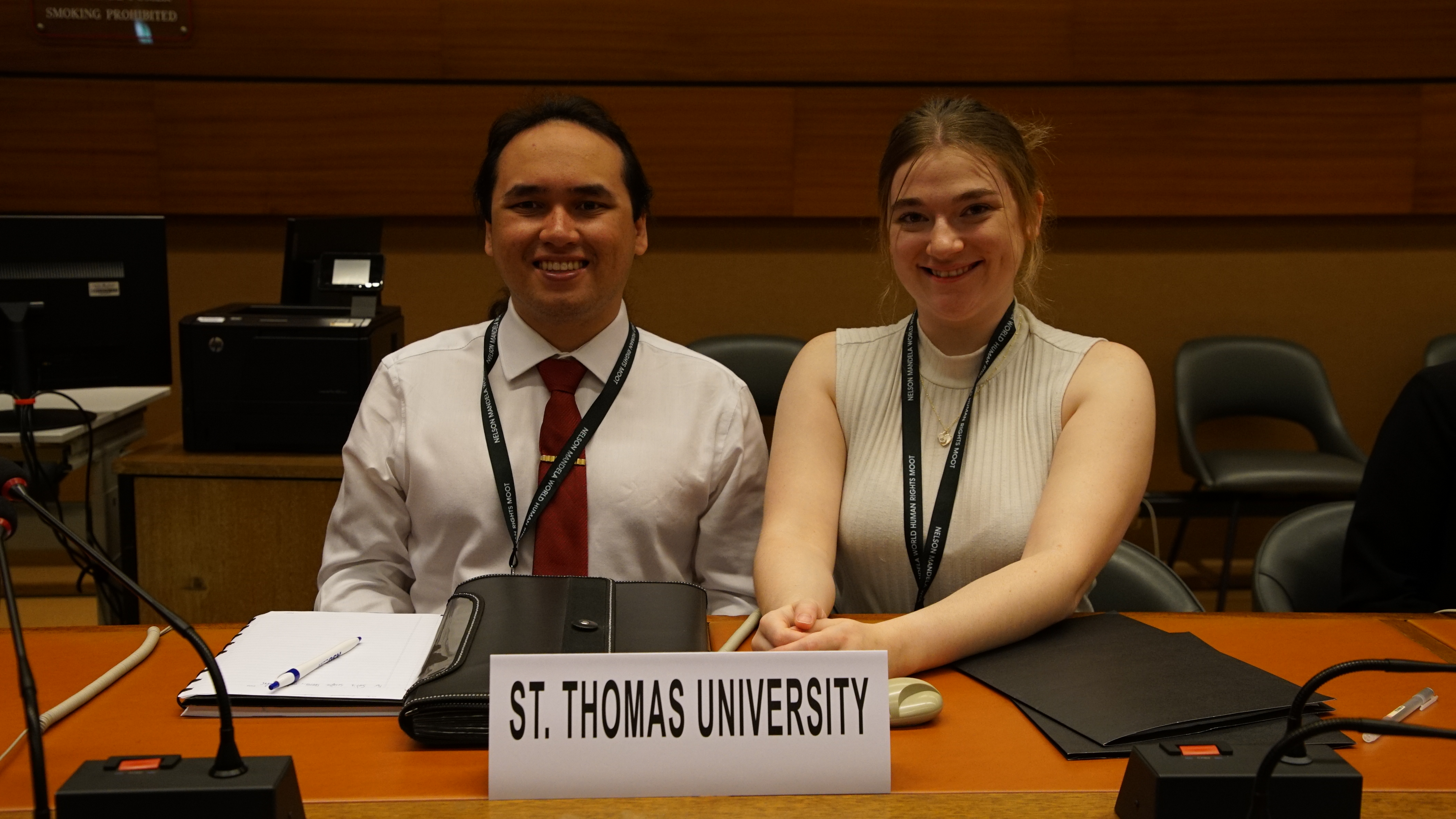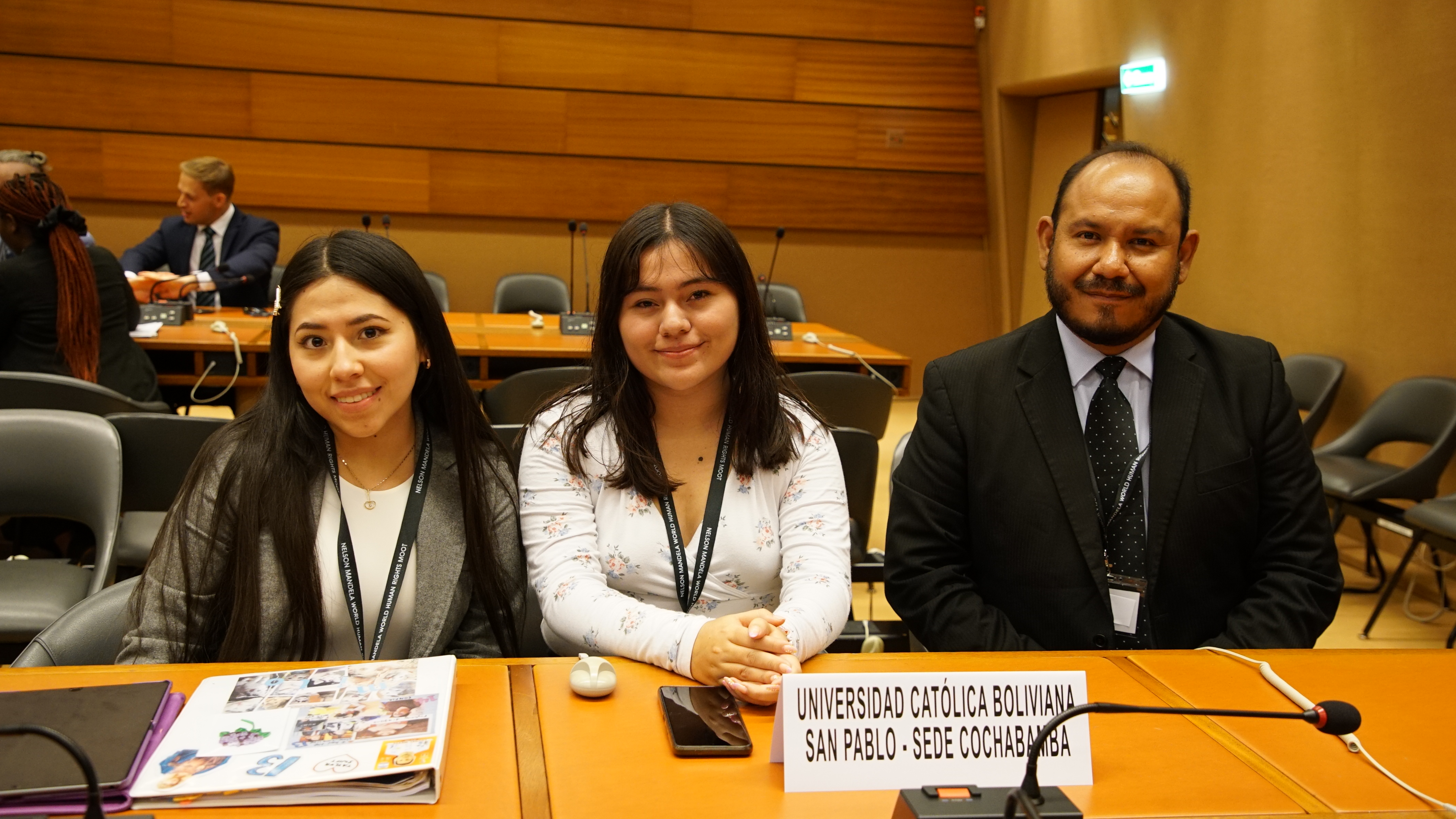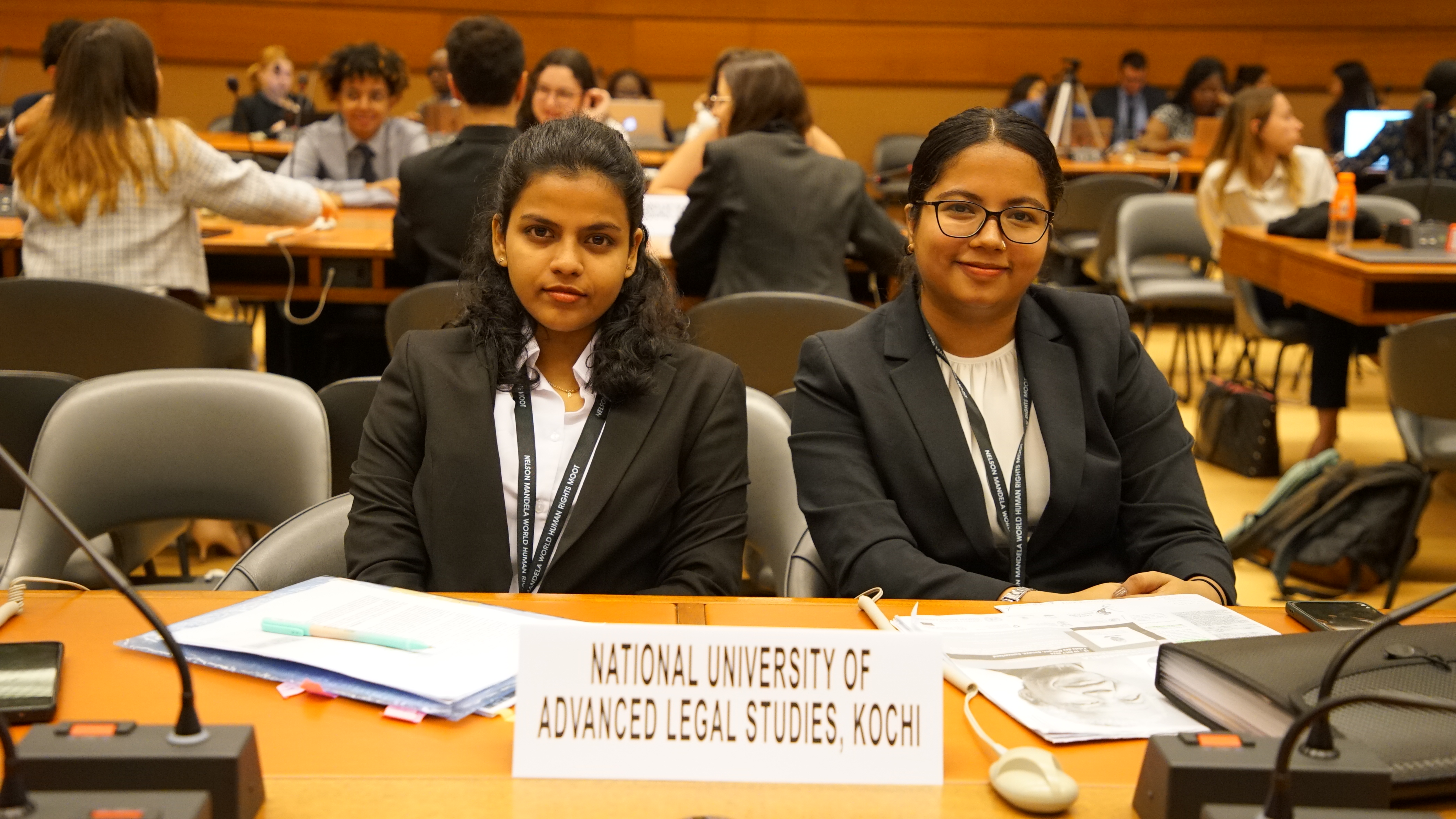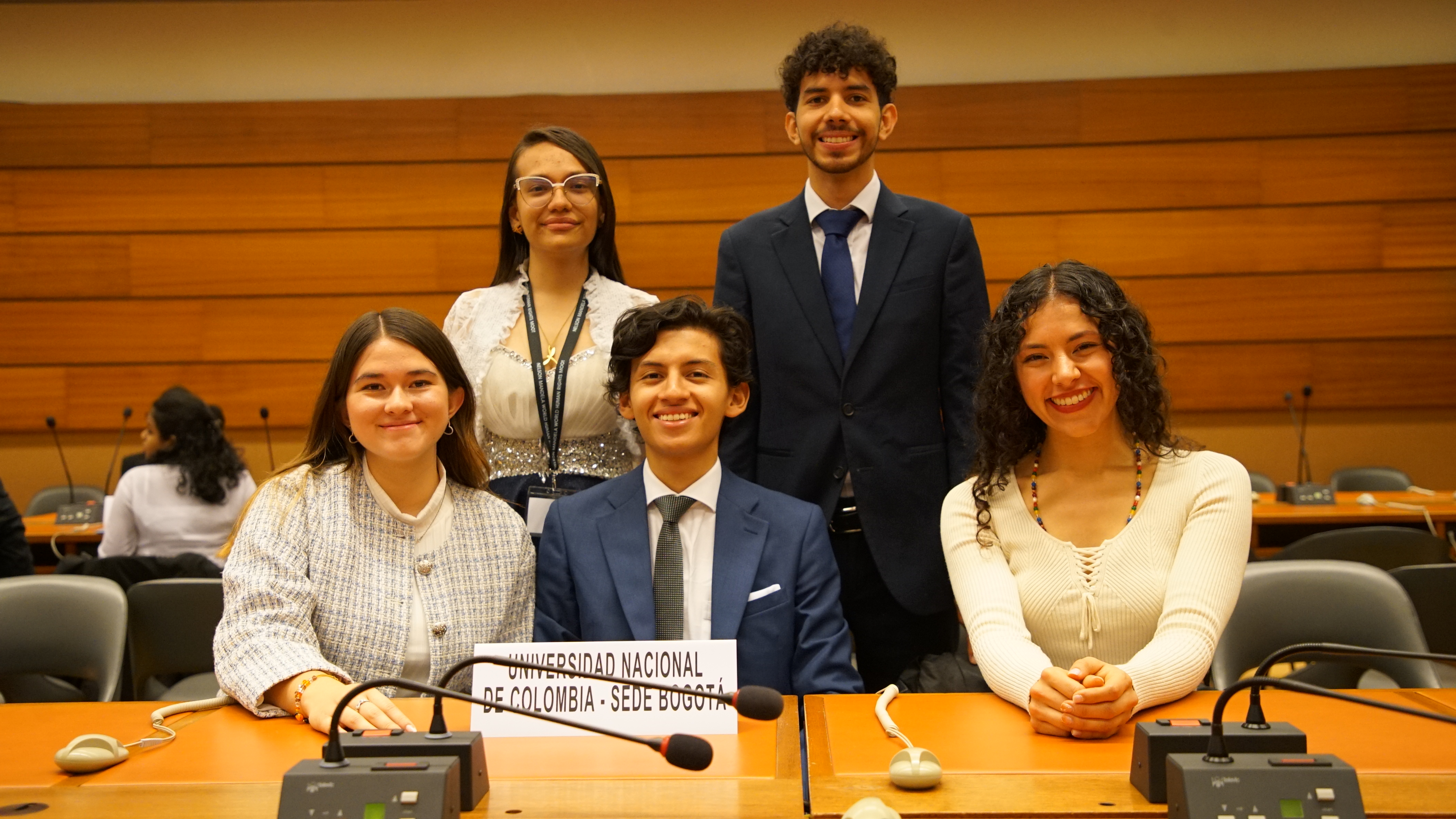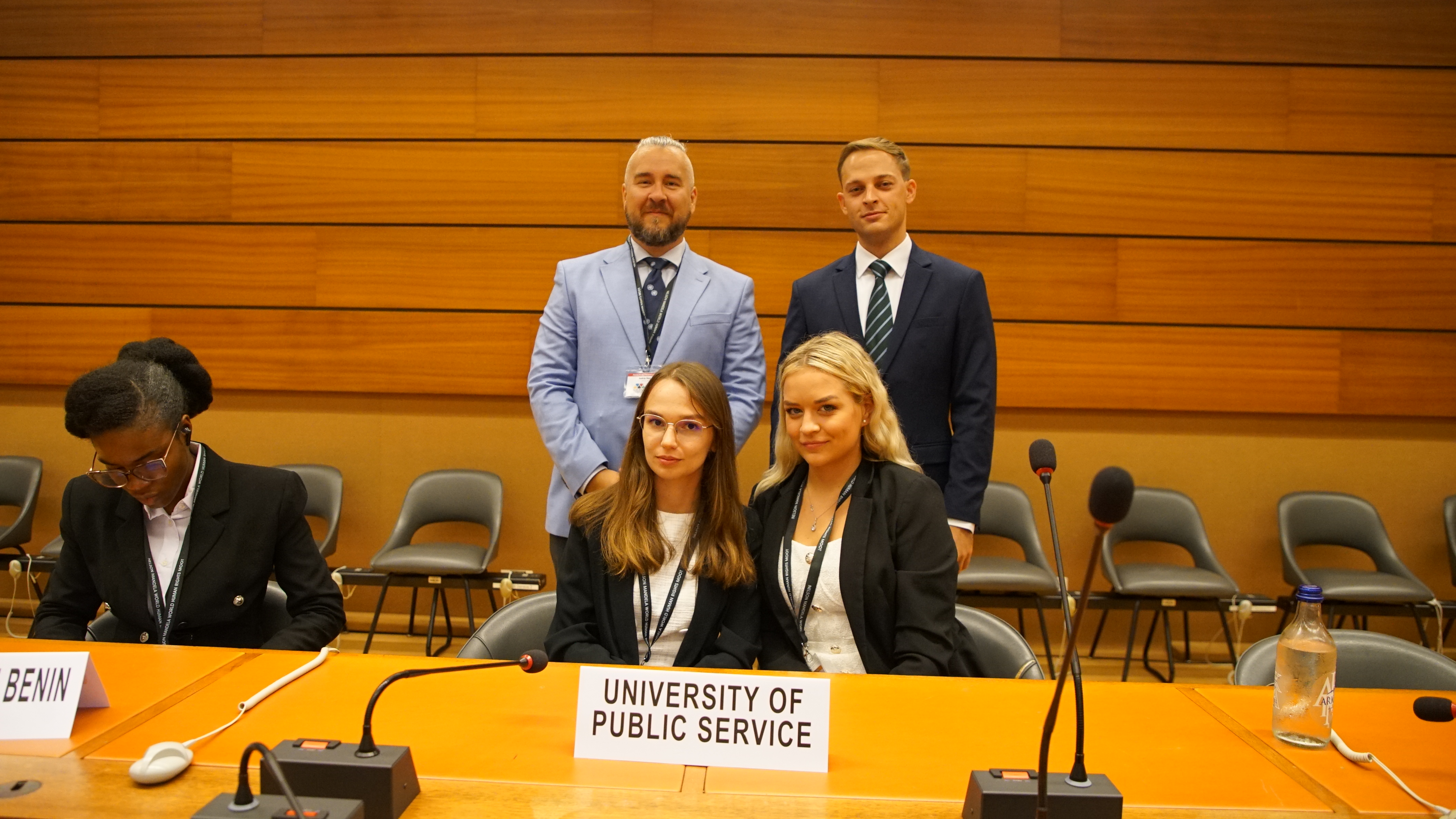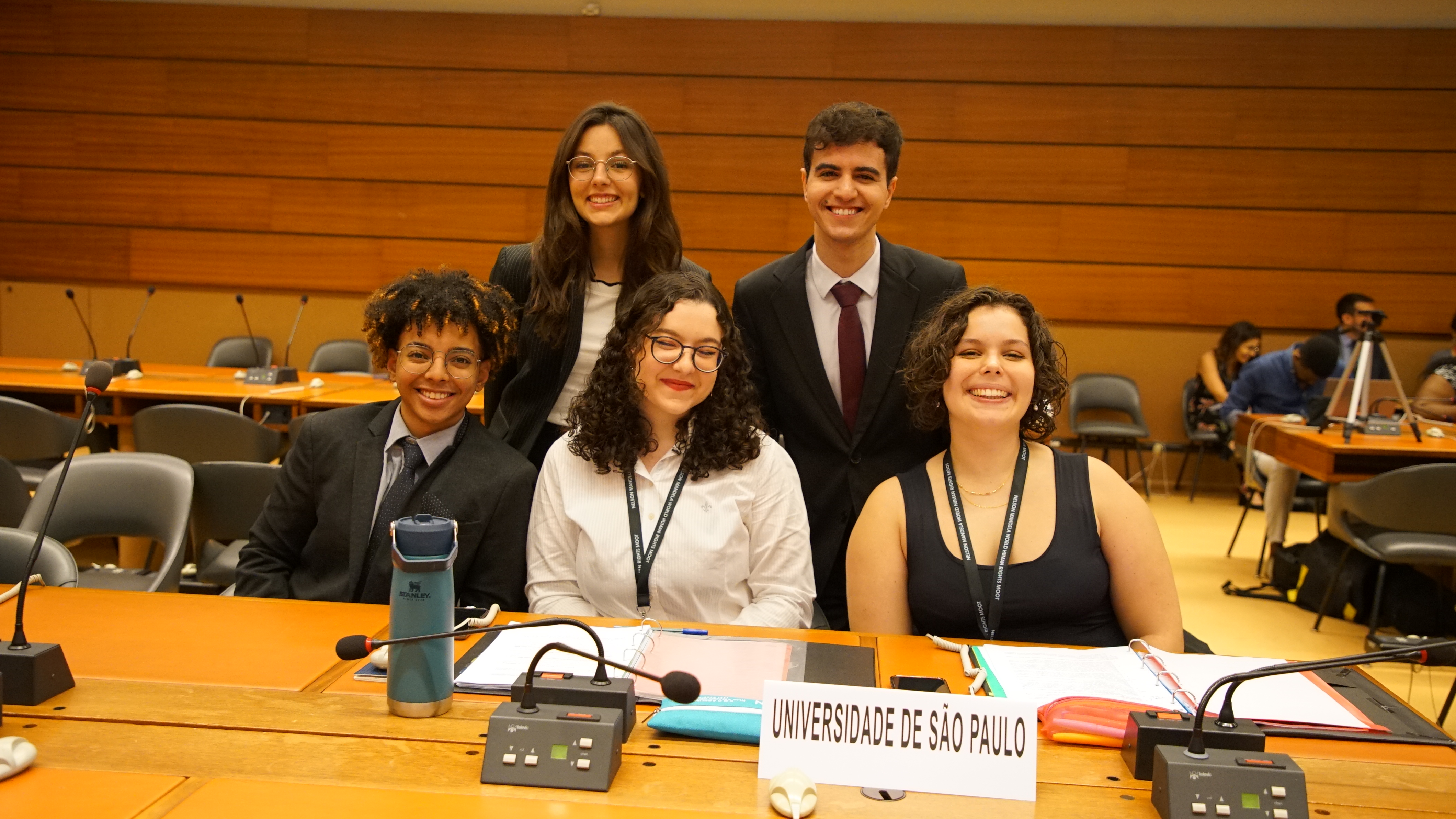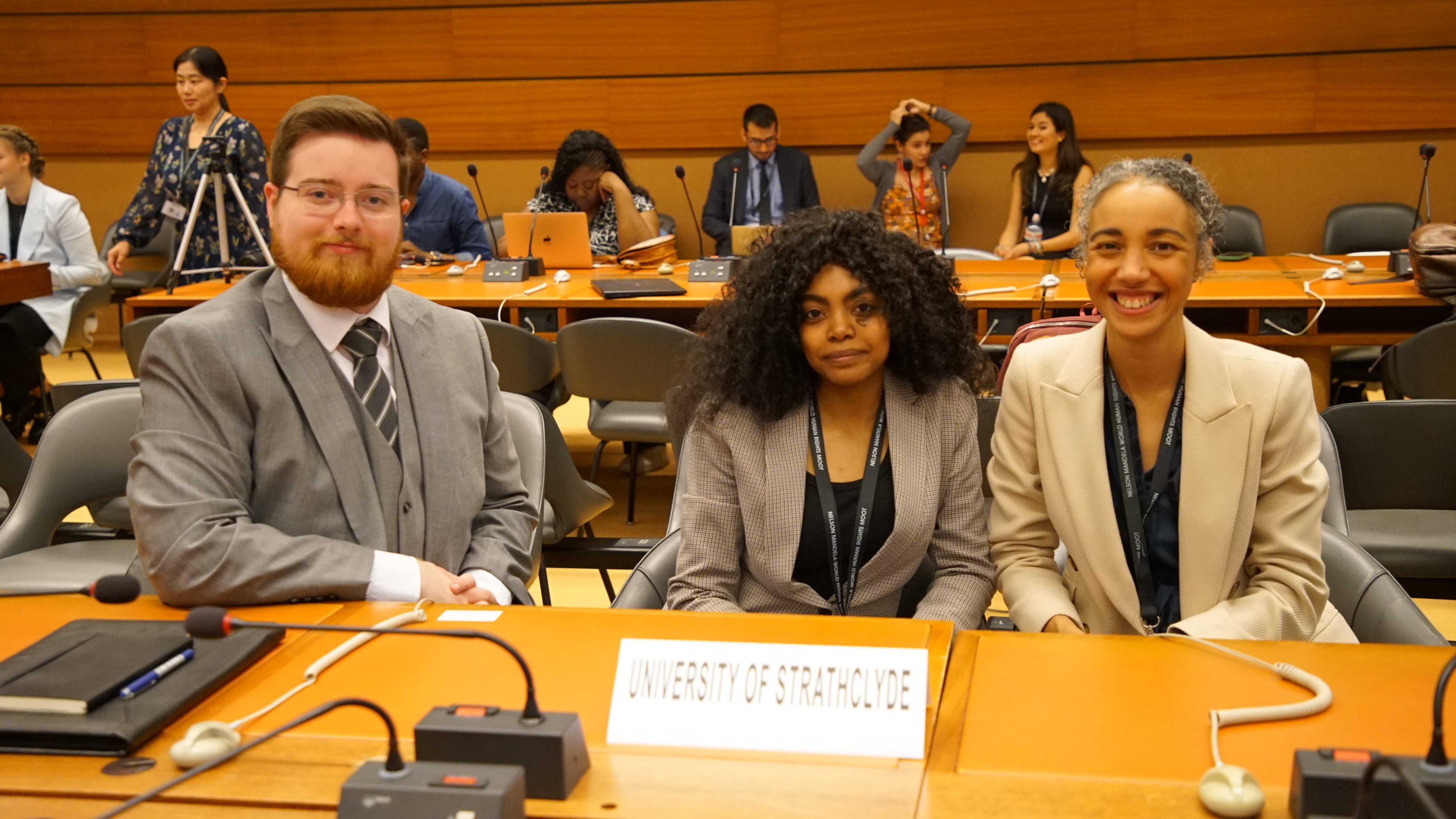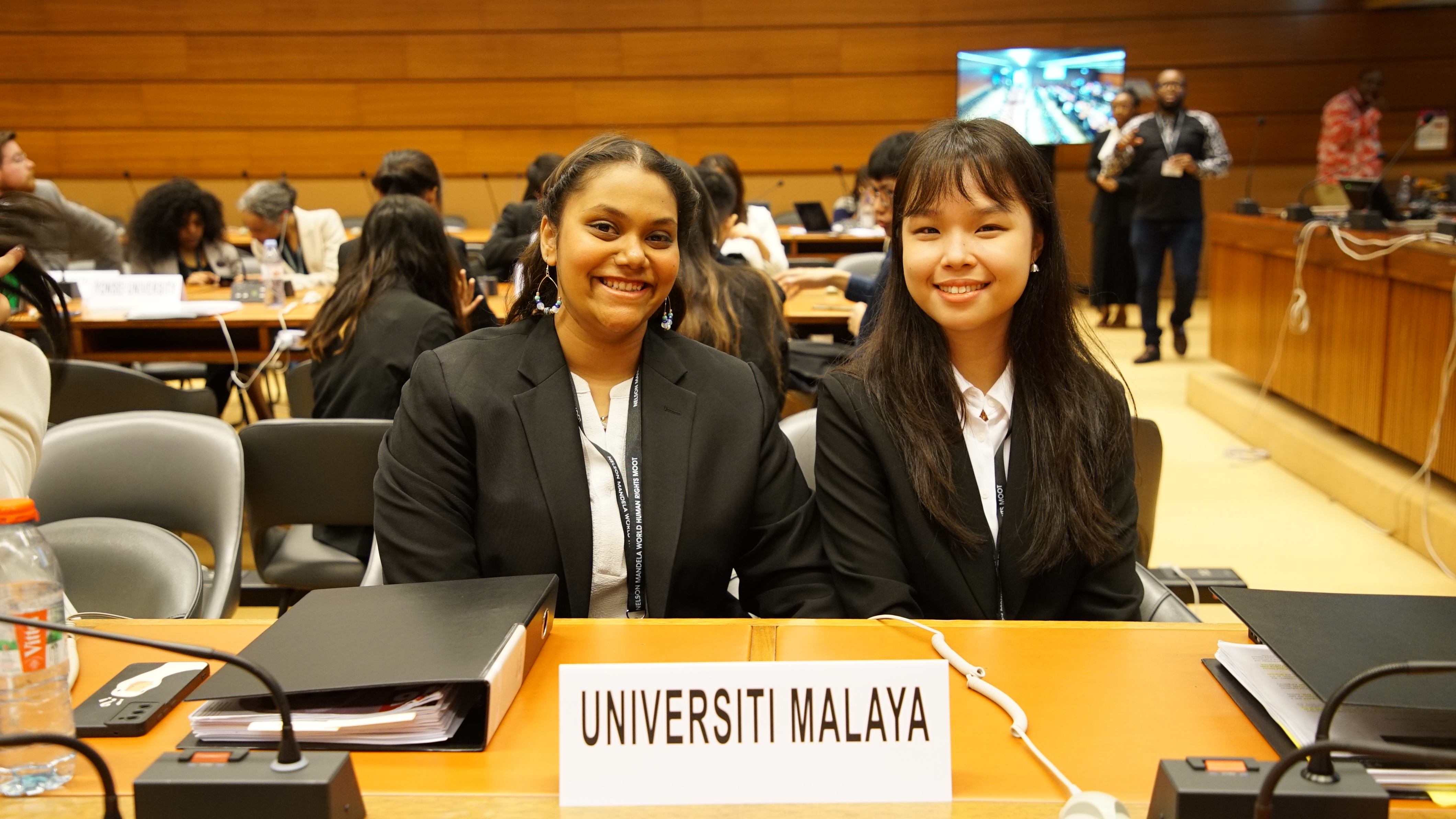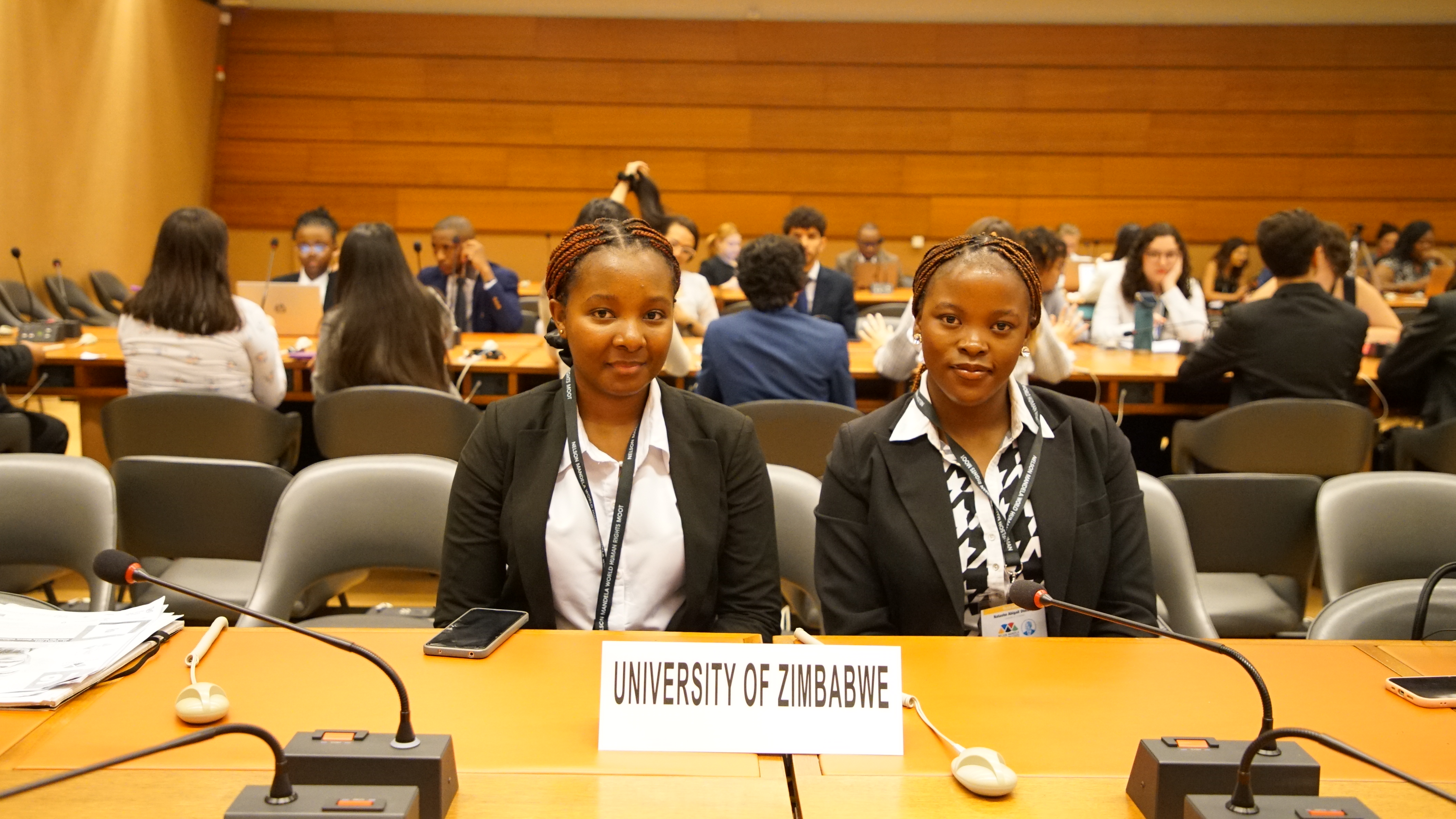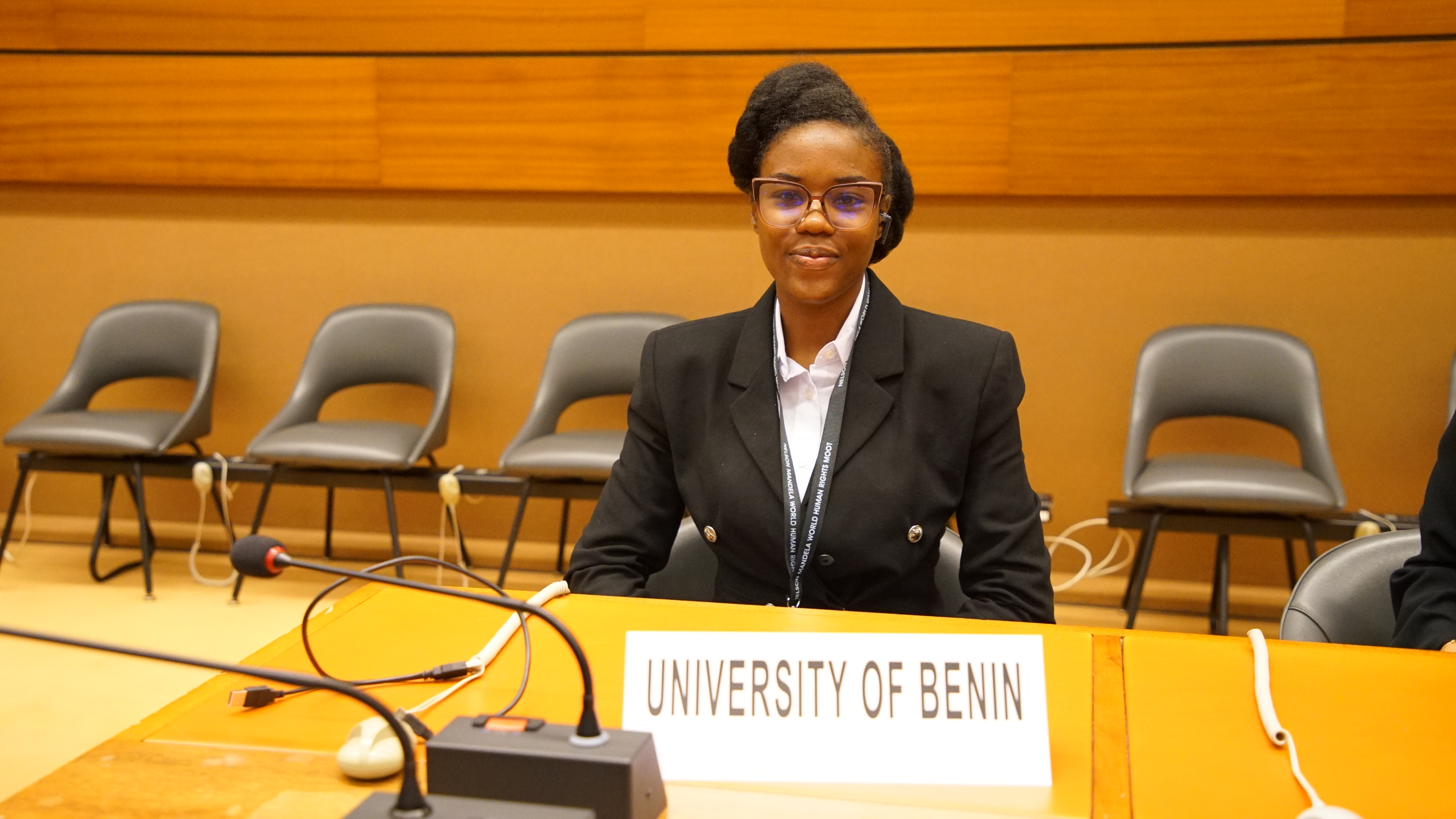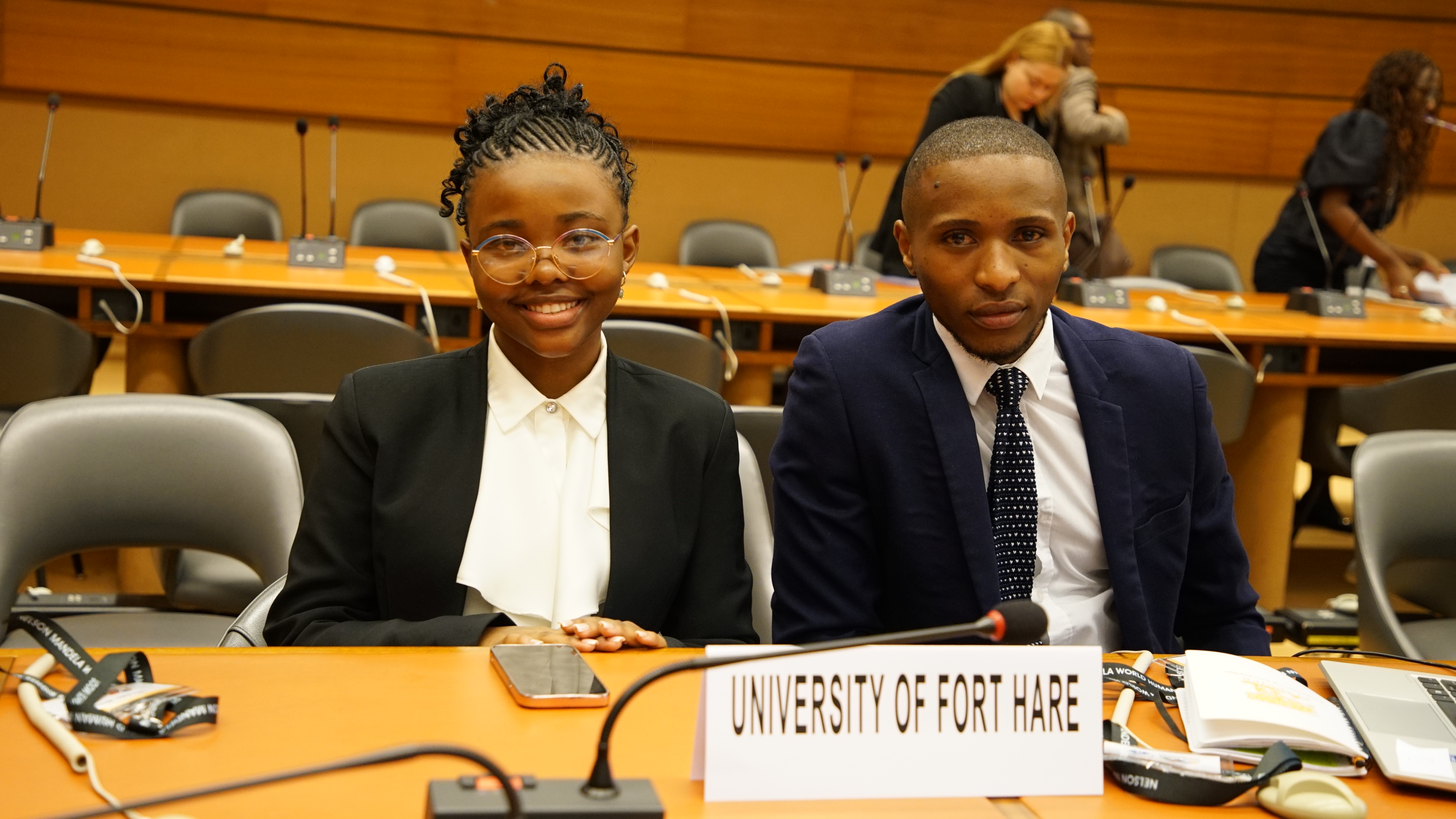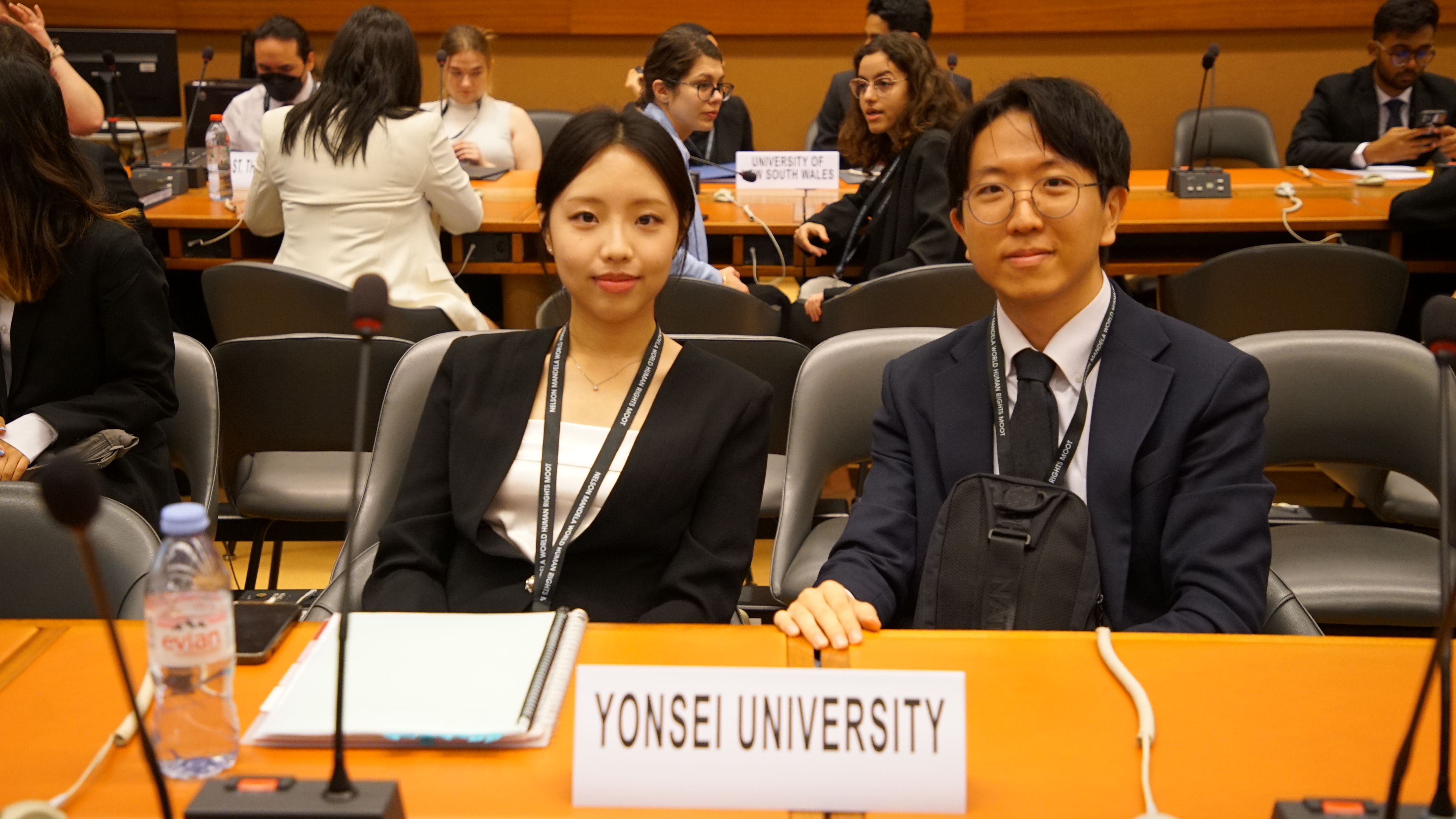The 16th Nelson Mandela World Human Rights Moot Court Competition concluded at the European seat of the United Nations, the Palais des Nations in Geneva, Switzerland, on 19 July 2024, a day after the celebration of 104 years since the birth of the internationally renowned human rights icon Nelson Mandela.
The University of New South Wales (Australia) represented by Samar Athar and Adithya Srivatsan, emerged as the winners, with the Singapore Management University represented by Eugene Ho and Xin Yan Ong, clinching the runners-up spot. The two other teams that advanced to the semi-finals are St Thomas University, Canada, which was represented by Jonathan McDonald and Jillian Lawrence; and Universidad Nacional de Columbia, at Bogotá, represented by Emily Pedraza Ochoa and Nicolás Gómez Mantilla. That the four top teams hailing from four different continents (Australasia, Asia, Latin America and North America), underscores the diversity and global reach of this Competition.
The final round was presided over by a panel of illustrious judges. They are Judge Veronica Gomez, who acted both in her capacity as President of the Global Campus of Human Rights and as Judge of the Inter-American Court of Human Rights; Judge Ivana Jelic, a Judge in respect of Montenegro at the European Court of Human Rights, where she is now also the section president; Judge Carlos Gomez, a member of the UN Human Rights Committee and also President of the Court of Appeal of the Balearic Islands in Spain; Professor Manfred Novak, a previous holder of numerous UN special rapporteur position and currently serving as Secretary-General of the Global Campus of Human Rights; and Mr Cláudio Foquiço, who is a member of the National Human Rights Commission of Mozambique
During the final rounds, the Deputy High Commissioner for Human Rights, Ms Neda Nada al Nasif, addressed the students and encouraged them to commit themselves to a career in human rights to address the many issues of pressing concern in the troubling times in which we live.
The final rounds brought to a close a Competition that started very early this year. Below is a summary of some of the highlights.
Written memorials
The first phase was that of submission of written pleadings (memorials) by 92 teams from across the five UN regions. These memorials were assessed, and the 50 best teams were identified, taking into account regional representation, and advanced to the virtual rounds. The ten highest marks were awarded to the following teams:
- Nelson Mandela University, South Africa (Africa Region) 86.25%
- University of the Free State, South Africa (Africa Region) 85%
- University of Public Service, Hungary (Central Europe Region) 85%
- National University of Management, Kingdom of Cambodia (Asia Region) 83.5%
- Pontifical Catholic University of Paranaì, Brazil (South America Region) 82.75%
- Swiss UMEF University of Niger (Africa Region) 82.75%
- Universite Catholique de Bukavu, Congo (Africa Region) 82%
- Center for Transnational Legal Studies, United Kingdom (Western Europe Region) 81.5%
- State University of Bangladesh (Asia Region) 81.5%
- Anhui Normal University (Asia Region) 80.75%
Preliminary (virtual) rounds
The 50 teams with the highest memorial marks participated in the virtual rounds. These took place from 14 May to 21 May 2024. These days were marked with fierce competition as all stakeholders not only had arguments to contend with –different time zones also had to be navigated and network connectivity issues had to be overcome. Special commendation must be given to Judges who logged in from around the globe and made themselves available despite their busy schedules. The general sentiment was that the quality of arguments and ingenuity of the students was remarkable and indicative of the preparation and diligence of the students. Unfortunately, it was necessary to identify the Top 24 teams that would advance to Geneva. The following Universities (out of the 24 advancing teams) emerged as the top 10 teams for the preliminary (virtual) rounds:
- National University of Singapore (Singapore)
- St. Thomas University (Canada)
- Universiti Malaya (Malaysia)
- University of Buenos Aires (Argentina)
- University of New South Wales (Australia)
- Singapore Management University (Singapore)
- Center for Transnational Legal Studies (United Kingdom)
- Universidad Nacional de Colombia, Sede Bogotá (Colombia)
- University of Zimbabwe (Zimbabwe)
- National Law University, Nagpur (India)
The top English oralists in the preliminary (virtual) rounds were as follows:
- Fisher Aidan, from University of Strathclyde, with an average of 89,21%
- Lee Yeonjae, from Yonsei University, with an average of 86,17%
- Lakshmi from National University of Advanced Legal Studies, Kochi Kankaparambil, with an average of 85,67%
- KissFanni, from University of Public Service, with an average of 85,58%
- Jillian Lawrence from St. Thomas University, with an average of 85,50%
- KochiRoys Anna Ronsha, from the National University of Advanced Legal Studies, with an average of 85,42%
- Harikrishnan Athikeshani, from Universiti Malaya, with an average of 85,08%
- Oh Sungmin, from Yonsei University, with an average of 84,67%
- Alfadil Esra, from University of Strathclyde, with an average of 84,67%
- Lou Jie, from Universiti Malaya, with an average of 84,50%
The performance of the Spanish oralist during preliminary (virtual) rounds was as follows:
- Montano Camila Vargas from Universidad Católica Boliviana had an average of 92,83%
- Pedraza Emily from Universidad Nacional de Colombia had an average of 91,33%
- Gomez Mantilla Nicolas from Universidad Nacional de Colombia had an average of 91,17%
- Parra Villazon Regina Victoria from Universidad Católica Boliviana had an average of 91,00%
Geneva Advanced rounds
The preliminary virtual rounds produced 24 advanced round teams. Two of these teams could regrettably not make it to Geneva, namely, Dr. V. Orestes Romualdez Educational Foundation, Inc. from the Philippines, and Kutafin Moscow State Law University from Moscow, which failed to secure a visa date in time to make it for the advanced rounds in Geneva.
The competition was officially opened by the address of Ambassador Omar Zniber in his capacity as President of the United Nations Human Rights Council. Ambassador Zniber reflected on the spirit and personality of the late icon President Mandela and exhorted all students to echo and carry out his passion in the advocacy and protection of human rights. On Monday and Tuesday, four court rooms ran concurrently, and each team had an opportunity to argue once as the applicant and once as the respondent. The top eight teams were selected for a seeded quarter final elimination ‘face off’. The teams that made it into the quarter-finals, which took place on Wednesday, were:
- St. Thomas University
- University of New South Wales
- Singapore Management University
- Universidad Nacional de Colombia, Sede Bogotá
- Center for Transnational Legal Studies
- Universiti Malaya Eliminated
- University of Buenos Aires
- National University of Singapore

